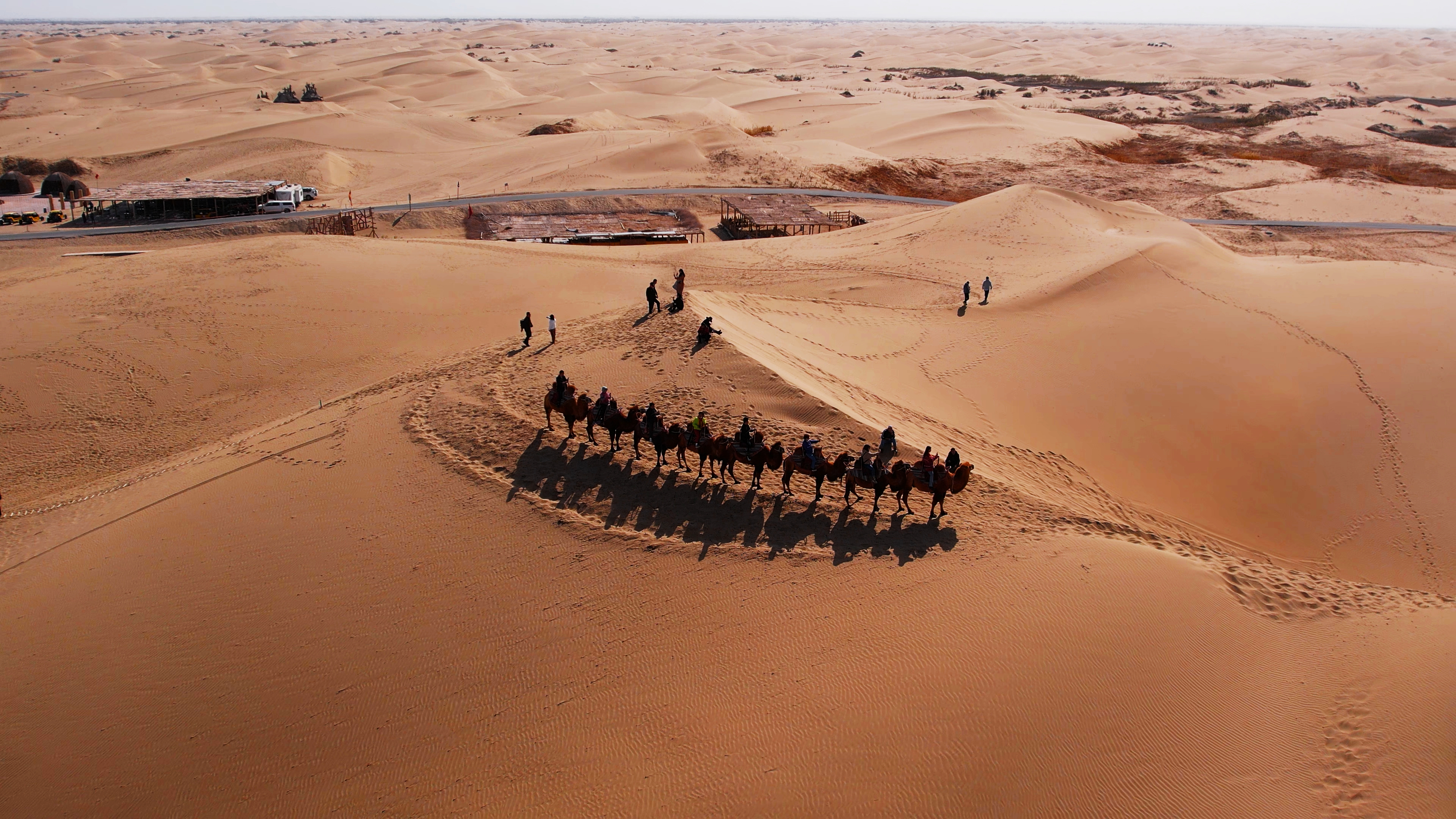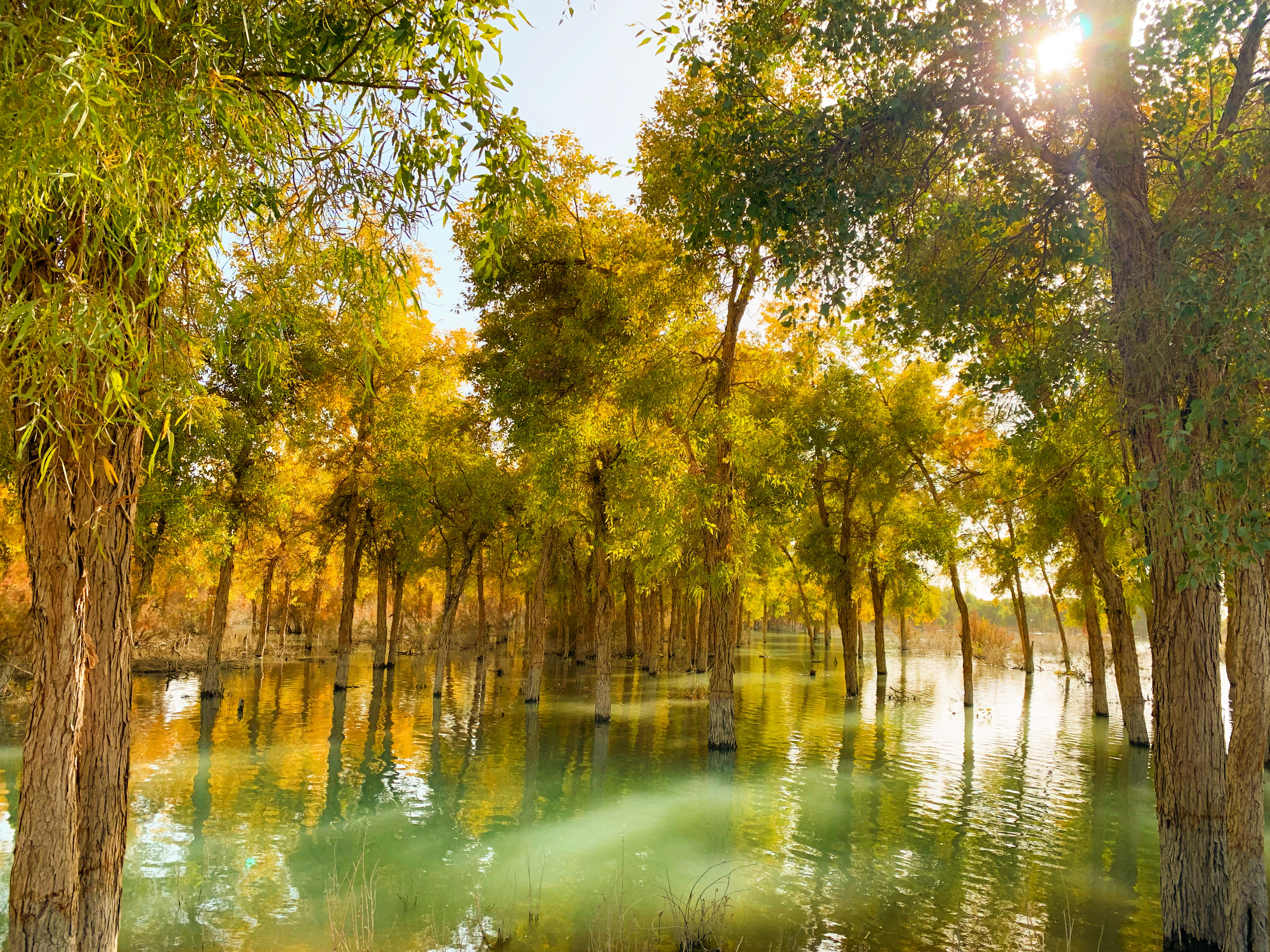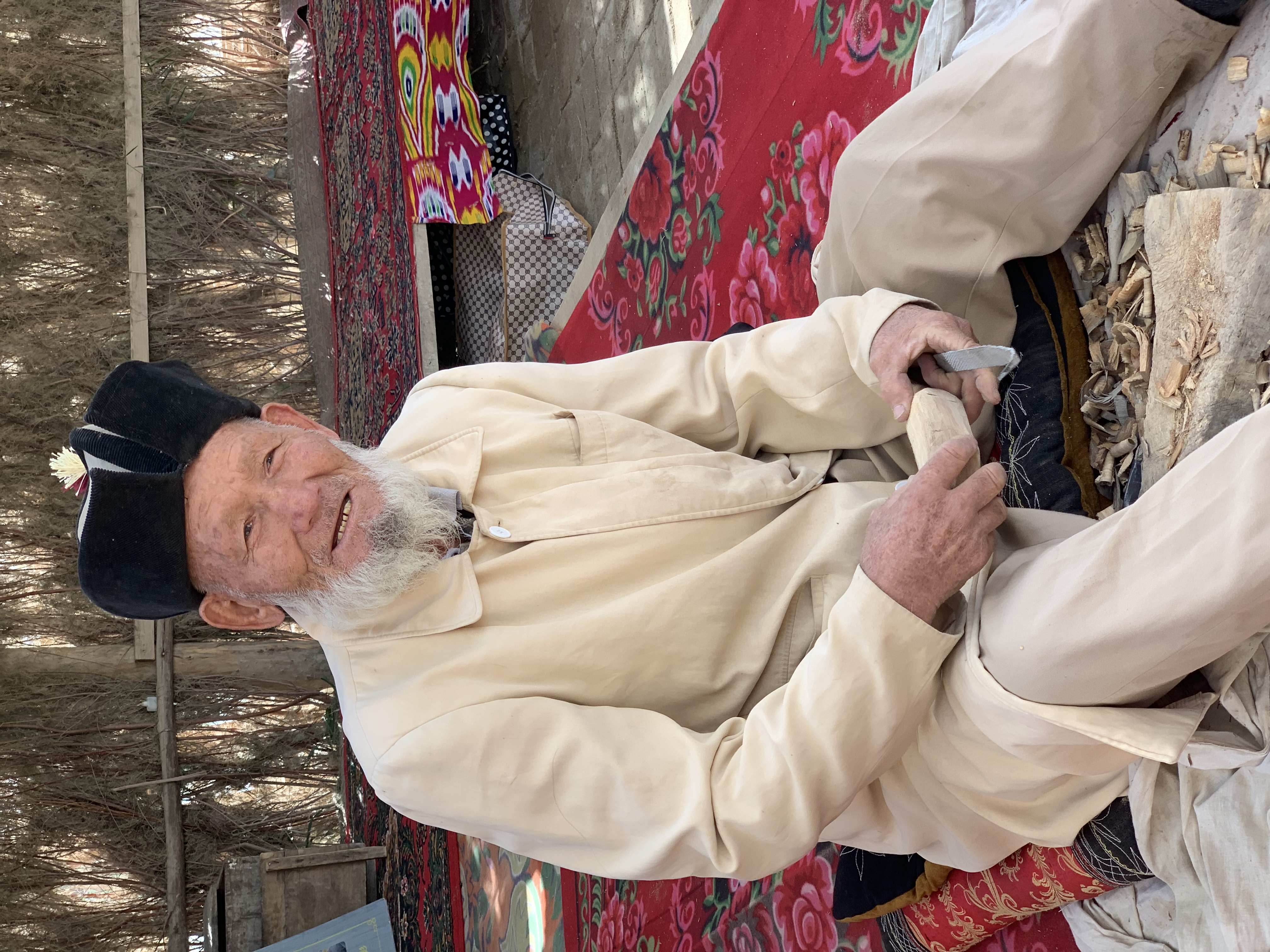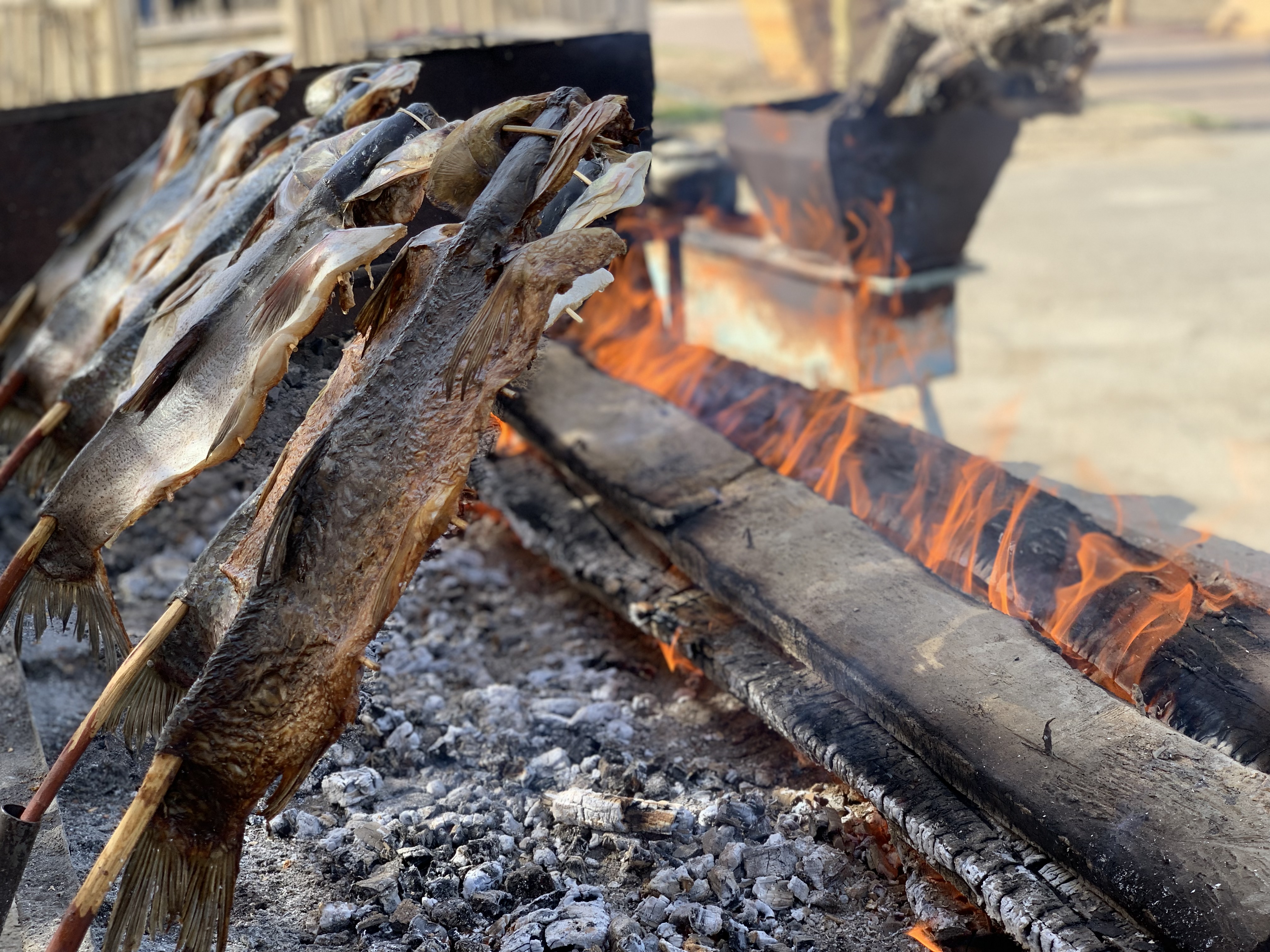Besides being a fusion of natural wonders and a connecting point on the Silk Road, Lop Nur People Village in northwest China's Xinjiang Uygur Autonomous Region is home to one of the oldest ethnic groups in the region.
Located 35 kilometers southwest of Yuli County and 85 kilometers south of Korla City, the village covers an area of 72 square kilometers, making it one of the largest villages in western China.
Famous spots and activities
The main attractions here are China's largest desert (Taklamakan Desert), the longest inland river (Tarim River), an ethereal blue lake (Fairy Lake) and a magnanimous forest of golden desert poplar (populus euphratica).
Tourists can not only wade in the river, walk through the forest and ride camels in the desert, but also indulge in hunting, sand skating, fishing and joining the Lop Nur people to sing and dance around the campfire.

Tourists riding camels in the Taklamakan Desert, Xinjiang Uygur Autonomous Region, northwest China. /CGTN
Tourists riding camels in the Taklamakan Desert, Xinjiang Uygur Autonomous Region, northwest China. /CGTN

A view of the populus euphratica forest in Yuli County, Xinjiang Uygur Autonomous Region, northwest China. /CGTN
A view of the populus euphratica forest in Yuli County, Xinjiang Uygur Autonomous Region, northwest China. /CGTN
Feel the warmth of Lop Nur people
Lop Nur people mainly live by the lakes along the Tarim River. They do not grow grain or herd livestock, but fish for food with small boats. Their dialect is also one of the three major dialects in Xinjiang, and their customs, songs and stories have unique artistic value.
Isolated from the rest of the world for thousands of years, only a few Lop Nur remain in the desert today. They hunt in the desert, plant crops and remain content with their primitive customs and habits.
Longevity is one of the characteristics of the Lop Nur people, as they live far from environmental pollution. There are many centenarians.

A centenarian making handcrafts in Lop Nur village. /CGTN
A centenarian making handcrafts in Lop Nur village. /CGTN
Don't forget the famous fish
Lastly, visitors can enjoy the distinctive barbecue in this village, which is quite different from the techniques and flavors used in other parts of Xinjiang.
Typically, fish is grilled on skewers made of tamarisk willows, which people dotingly call "guardians of the desert." As for the flavor, it is salty – if it has anything other than salt, it is not authentic.

Grilled fish with nothing but salt. /CGTN
Grilled fish with nothing but salt. /CGTN

